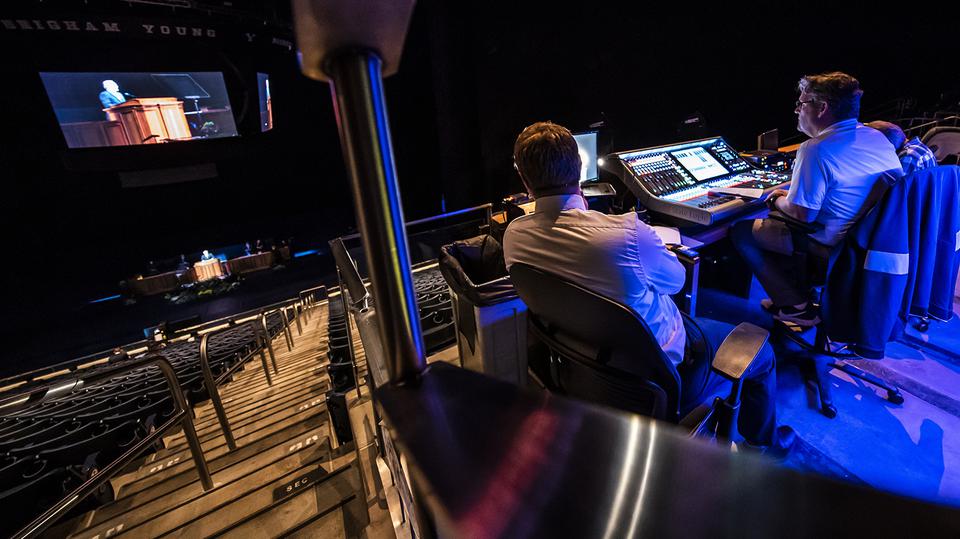Elder Jack N. Gerard of the Seventy was once a 20-something man enduring the stretching throes of university life. He married Claudette as an undergraduate. They immediately started a family. For the next six years, he worked full time, served in a local bishopric, and attended night classes to complete undergraduate and law degrees at George Washington University in Washington, D.C.
Amidst the burdens, bustle and busyness, an anonymous acquaintance wrote him and his wife a letter, criticizing the Gerards for exhausting themselves by doing so much in so short a time span. This person insisted that their priorities were out of order. Combined with the stress natural to anyone in those circumstances, this increased their anxiety during moments when they questioned their life choices.
| Temple Square is always beautiful in the springtime. Gardeners work to prepare the ground for General Conference. © 2012 Intellectual Reserve, Inc. All rights reserved. | 1 / 2 |
“We were not certain that our efforts would pay off,” said Elder Gerard, who later served for many years as president and CEO of notable entities, including, most recently, the American Petroleum Institute. “We wondered aloud if it was all worth it. Every day seemed to be an act of faith as we tried to stay true to our commitment while wading through the murky waters of life. Now that the experience is over, we reflect on those days fondly and can see the hand of the Lord guiding us every step of the way.”
The lesson for his Tuesday morning audience (students at Brigham Young University watching remotely because of COVID-19 precautions) was simple: If you place your trust in God, not only will things work out—they will yield eternal blessings.
Elder Gerard, the executive director of the Church Communication Department, said he and Claudette have measured every significant decision in their lives against the standard of eternal life (which one scripture calls the “greatest of all the gifts of God”).
“We anchored ourselves to the hope of eternal life because we needed a clear beacon to pursue, particularly when day-to-day choices were ambiguous and at times even confusing,” he said.
Such an approach is critical, Elder Gerard added, to inoculate one “against the gradual slide to relativism, where many begin to measure their conduct against that of others, no longer seeking to do the will of the Lord but settling for just doing something better than someone else.”

gerard byu
Because of COVID-19 precautions, Elder Jack N. Gerard of the Seventy spoke to students via digital live stream from empty Marriott Center on March 17, 2020.Photo courtesy of BYUBy taking this approach to life, Elder Gerard said, his student audience can one day look back on their lives in awe of the great things God has wrought. He pointed to the words of Ammon, a prominent Nephite missionary in the Book of Mormon. Exulting in the dramatic results of a challenging 14-year mission to help the Lamanites know more about Jesus Christ, Ammon asks, “Could we have supposed when we started . . . that God would have granted unto us such great blessings?” (Alma 26:1).
“Like Ammon, each of us may find it difficult to suppose exactly what great blessings the Lord has in store for us,” Elder Gerard said. “Regardless of how routine or how significant, every decision is a choice that can move us either closer to or away from our ultimate destination. … I would encourage you now during your schooling years and throughout your life to always place your trust in the Lord, to heed His counsel and—even when the path is not clear—to know the great blessings He will grant unto you.”
Watch Elder Gerard’s complete address at byutv.org. Read the transcript here.